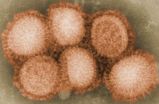(Press-News.org) Chicago — Americans' moral opposition to animal testing
has grown significantly since 2001, according to a new study presented today at the annual
meeting of the prestigious American Association for the Advancement of Science (AAAS) in
Chicago.
Researchers from PETA and Western Governors University examined data collected
in independent surveys by the Gallup organization from 2001 to 2013, in which approximately
1,000 American adults each year were asked whether they found "medical testing on animals" to be
"morally acceptable" or "morally wrong."
The researchers found the following significant
results:
In 2013, 41 percent of adults overall found medical testing on animals to be
morally wrong, a small increase since 2012 and a 12 percent increase since 2001.
Among
adults ages 18 to 29, opposition to medical testing on animals was 54 percent in 2013, an
increase of 23 percent since 2001. Opposition increased slightly among older adults since
2012—about one-third of adults 30 and over oppose animal testing. The data illustrate a growing
generation gap in attitudes about this issue. A majority of women—52 percent—also found
medical testing on animals to be morally wrong, an increase of 9 percent from 2012 and 16
percent since 2001. Thirty percent of males opposed animal testing in 2013. Opposition to
animal testing rose significantly among all political affiliations since 2001.
"Opposition to animal testing is steadily rising among people of every gender, age group, and
political affiliation, likely because people have more exposure than ever to information about
the cruelty that animals endure in laboratories, how animal testing rarely helps humans, and the
superior alternatives available," says study co-author Justin Goodman, a director at PETA and an
adjunct instructor of sociology at Marymount University in Arlington, Va. "Now, the country's
laws and policies governing animal experimentation and its research funding practices need to
evolve to meet public expectations as well."
Data in this study were weighted to ensure
that they were nationally representative.
INFORMATION:
A copy of the research poster that was
presented at AAAS is available upon request. For more information, please visit PETA.org.
New study shows growing opposition to animal tests
More than half of women, young adults find animal testing 'morally wrong'
2014-02-17
ELSE PRESS RELEASES FROM THIS DATE:
Mount Hood study suggests volcano eruptibility is rare
2014-02-17
Forecasts of when a volcano is ready to erupt could be a little closer thanks to work by
geologists at the University of California, Davis, and Oregon State University published online Feb.
16 in the journal Nature.
For an eruption to occur, the magma, or molten rock under the volcano must be sufficiently
mobile to erupt.
"The question is, what percentage of time is the magma in an eruptible state?" said Kari
Cooper, associate professor in the Department of Earth and Planetary Sciences at UC Davis and lead
author on the paper.
"People think about there being ...
Volcanoes, including Mt. Hood, can go from dormant to active quickly
2014-02-17
CORVALLIS, Ore. – A new study suggests that the magma sitting 4-5 kilometers beneath the surface of Oregon's Mount Hood has been stored in near-solid conditions for thousands of years, but that the time it takes to liquefy and potentially erupt is surprisingly short – perhaps as little as a couple of months.
The key, scientists say, is to elevate the temperature of the rock to more than 750 degrees Celsius, which can happen when hot magma from deep within the Earth's crust rises to the surface. It is the mixing of the two types of magma that triggered Mount Hood's last ...
River samples shed light on the spread of potential 'superbugs'
2014-02-17
The spread of antibiotic-resistance to one of the most pristine locations in Asia is linked to the annual human pilgrimages to the region, new research has shown.
Experts from Newcastle University, UK, and the Indian Institute of Technology in Delhi (IIT-Delhi), sampled water and sediments at seven sites along the Upper Ganges River, in the foothills of the Himalayas.
They found that in May and June, when hundreds of thousands of visitors travel to Rishikesh and Haridwar to visit sacred sites, levels of resistance genes that lead to "superbugs" were found to be about ...
New blood cells fight brain inflammation
2014-02-17
Hyperactivity of our immune system can cause a state of chronic inflammation. If chronic, the inflammation will affect our body and result in disease. In the devastating disease multiple sclerosis, hyperactivity of immune cells called T-cells induce chronic inflammation and degeneration of the brain. Researchers at BRIC, the University of Copenhagen, have identified a new type of regulatory blood cells that can combat such hyperactive T-cells in blood from patients with multiple sclerosis. By stimulating the regulatory blood cells, the researchers significantly decreased ...
Iowa State University's Wintersteen talks partnerships at national science meeting
2014-02-17
AMES, Iowa – Wendy Wintersteen, dean of Iowa State University's College of Agriculture and Life Sciences, spoke on Sunday of the importance of public-private partnerships in strengthening global food security during the annual meeting of the American Association for the Advancement of Science in Chicago.
During her talk, part of a panel on research and development for sustainable agriculture and food security, Wintersteen stressed the importance of partnerships in providing the innovation necessary to meet global challenges.
She said climate change, pests, plant ...
Scientists call for new stewardship of the deep ocean: Earth's last frontier
2014-02-17
The deep ocean, the largest domain for life on earth, is also its least explored environment. Humans are now encroaching more vigorously than ever into the ocean's deep regions, exploiting the deep's resources and placing its wealth of vibrant habitats and natural services for the planet at risk.
Lisa Levin, a biological oceanographer at Scripps Institution of Oceanography at UC San Diego, believes the vital functions provided by the deep sea—from carbon sequestration to nurturing fish stocks—are key to the health of the planet. As humans ramp up exploitation of deep-sea ...
Researchers rejuvenate stem cell population from elderly mice, enabling muscle recovery
2014-02-17
STANFORD, Calif. — Researchers at the Stanford University School of Medicine have pinpointed why normal aging is accompanied by a diminished ability to regain strength and mobility after muscle injury: Over time, stem cells within muscle tissues dedicated to repairing damage become less able to generate new muscle fibers and struggle to self-renew.
"In the past, it's been thought that muscle stem cells themselves don't change with age, and that any loss of function is primarily due to external factors in the cells' environment," said Helen Blau, PhD, the Donald and Delia ...
New 'pomegranate-inspired' design solves problems for lithium-ion batteries
2014-02-17
An electrode designed like a pomegranate – with silicon nanoparticles clustered like seeds in a tough carbon rind – overcomes several remaining obstacles to using silicon for a new generation of lithium-ion batteries, say its inventors at Stanford University and the Department of Energy's SLAC National Accelerator Laboratory.
"While a couple of challenges remain, this design brings us closer to using silicon anodes in smaller, lighter and more powerful batteries for products like cell phones, tablets and electric cars," said Yi Cui, an associate professor at Stanford ...
Worldwide study finds that fertilizer destabilizes grasslands
2014-02-17
Lincoln, Neb., Feb. 17, 2014 -- Fertilizer could be too much of a good thing for the world's grasslands, according to study findings to be published online Feb. 16 by the journal Nature.
The worldwide study shows that, on average, additional nitrogen will increase the amount of grass that can be grown. But a smaller number of species thrive, crowding out others that are better adapted to survive in harsher times. It results in wilder swings in the amount of available forage.
"More nitrogen means more production, but it's less stable," said Johannes M.H. Knops, a University ...
Study on flu evolution may change textbooks, history books
2014-02-17
A new study reconstructing the evolutionary tree of flu viruses challenges conventional wisdom and solves some of the mysteries surrounding flu outbreaks of historical significance.
The study, published in the journal Nature, provides the most comprehensive analysis to date of the evolutionary relationships of influenza virus across different host species over time. In addition to dissecting how the virus evolves at different rates in different host species, the study challenges several tenets of conventional wisdom, for example the notion that the virus moves largely ...
LAST 30 PRESS RELEASES:
Novel camel antimicrobial peptides show promise against drug-resistant bacteria
Scientists discover why we know when to stop scratching an itch
A hidden reason inner ear cells die – and what it means for preventing hearing loss
Researchers discover how tuberculosis bacteria use a “stealth” mechanism to evade the immune system
New microscopy technique lets scientists see cells in unprecedented detail and color
Sometimes less is more: Scientists rethink how to pack medicine into tiny delivery capsules
Scientists build low-cost microscope to study living cells in zero gravity
The Biophysical Journal names Denis V. Titov the 2025 Paper of the Year-Early Career Investigator awardee
Scientists show how your body senses cold—and why menthol feels cool
Scientists deliver new molecule for getting DNA into cells
Study reveals insights about brain regions linked to OCD, informing potential treatments
Does ocean saltiness influence El Niño?
2026 Young Investigators: ONR celebrates new talent tackling warfighter challenges
Genetics help explain who gets the ‘telltale tingle’ from music, art and literature
Many Americans misunderstand medical aid in dying laws
Researchers publish landmark infectious disease study in ‘Science’
New NSF award supports innovative role-playing game approach to strengthening research security in academia
Kumar named to ACMA Emerging Leaders Program for 2026
AI language models could transform aquatic environmental risk assessment
New isotope tools reveal hidden pathways reshaping the global nitrogen cycle
Study reveals how antibiotic structure controls removal from water using biochar
Why chronic pain lasts longer in women: Immune cells offer clues
Toxic exposure creates epigenetic disease risk over 20 generations
More time spent on social media linked to steroid use intentions among boys and men
New study suggests a “kick it while it’s down” approach to cancer treatment could improve cure rates
Milken Institute, Ann Theodore Foundation launch new grant to support clinical trial for potential sarcoidosis treatment
New strategies boost effectiveness of CAR-NK therapy against cancer
Study: Adolescent cannabis use linked to doubling risk of psychotic and bipolar disorders
Invisible harms: drug-related deaths spike after hurricanes and tropical storms
Adolescent cannabis use and risk of psychotic, bipolar, depressive, and anxiety disorders
[Press-News.org] New study shows growing opposition to animal testsMore than half of women, young adults find animal testing 'morally wrong'




